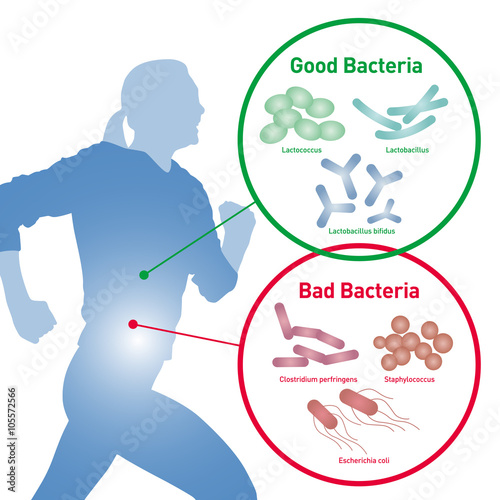More than 2,000 years ago Hippocrates, the father of modern medicine, stated: “All disease begins in the gut”. If you’ve been watching mainstream health news anytime in the recent past, the public is finally catching up with this wisdom. There is an extensive library of scientific studies which demonstrates that gut health is critical to overall health, and an unhealthy gut ecosystem adds to a wide range of diseases including diabetes, obesity, depression and chronic fatigue syndrome. It is important to maintain the right balance of gut bacteria for positive physical, emotional and mental health.
ago Hippocrates, the father of modern medicine, stated: “All disease begins in the gut”. If you’ve been watching mainstream health news anytime in the recent past, the public is finally catching up with this wisdom. There is an extensive library of scientific studies which demonstrates that gut health is critical to overall health, and an unhealthy gut ecosystem adds to a wide range of diseases including diabetes, obesity, depression and chronic fatigue syndrome. It is important to maintain the right balance of gut bacteria for positive physical, emotional and mental health.
With an estimated 75-80% of your immune system located in your gut, healthy gut flora can have a positive effect on the body’s immune system, decreasing the risk of disease including depression, obesity, diabetes, eczema, and allergies. Many researchers and other medical practitioners believe that supporting intestinal health and restoring the integrity of the gut barrier will be one of the most important goals of medicine in the 21st century. If you can change your gut, you can change your health.
The bacteria in our gut contain more than 100 trillion cells, both good and bad. While the “good” bacteria improve digestion, process vitamins and strengthen the immune system, “bad” gut bacteria can play havoc with digestion and affect other parts of the body including skin and even mental health. Achieving a healthy gut isn’t about purging the body of bad bacteria but balancing it with good bacteria and encouraging it to grow.
Warning signs of too much bad gut bacteria
- Constipation

- Gas … too much or too little. Normally a person passes gas about 20 times a day. Excessive farting or room-clearing smells may indicate gut flora issues and a build-up of bad bacteria in the lower digestive tract.
- Chronic diarrhea. A loose stool is usually a desperate attempt to detoxify the body of these unwanted house guests.
- Chronic bad breath – H. Pylori is one of the most common causes of bad breath from the digestive system. When normal gut bacteria get out of balance, it can lead to heartburn or acid reflux issues.
How to put your gut back into balance
- Avoid antibiotics. Antibiotics cannot tell the difference between good and bad bacteria when taken for an infection, essentially killing off your gut flora. If you are on an antibiotic treatment, bear in mind that you are going to have to build back up your gut flora once it’s over.
- Take a probiotic supplement. Two particular strains of bacteria, lactobacillus and bifidobacterium, have been found by research to be particularly beneficial to your gut.
- Eat probiotic-enhancing foods. Plain, active-cultured yogurt, kefir, unpasteurized sauerkraut, kimchi and miso all contain elements that help promote positive gut flora … and they’re tasty. Remember not all yogurt is created the same, so make sure it has active culture otherwise it’s not doing much for you.
- Exercise! This affects your whole body, including your gut. Professional athletes actually show a much more diverse microbiome than their non-exercising counterparts.
- Feed your bacteria! Ok, technically we are always feeding them, but some foods, e.g. leeks, onions, asparagus, and Jerusalem artichokes, provide a great meal of plant fiber for your beneficial gut bacteria. These are called prebiotics.
- Skip the sugar. Sugar and carbohydrate-rich foods such as breads and pasta break down in the stomach and provide an excellent source of food for bad bacteria.
For more than 2000 years it has been known that gut health is overall health. Even though today more people are focusing on it, don’t kid yourself into thinking this is just a fad. The number of bacteria cells in the human body actually outnumber true human cells by quite a bit. You are the sum of all of your parts, so make sure you are treating them as well as you can and they will look after you.




